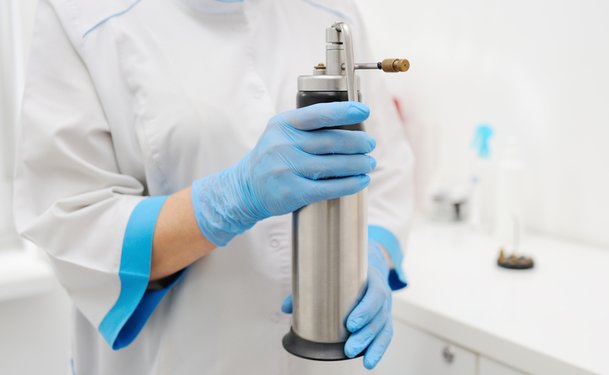What you need to know about Cryosurgery Procedure
Contents
- 1 What you need to know about Cryosurgery Procedure
- 2 What Does the Procedure Involve?
- 3 How Long Should You Stay at the Destination?
- 4 How Long is the Recovery Time?
- 5 What Aftercare Should You Consider?
- 6 What is the Success Rate for Cryosurgery Procedure?
- 7 Are there Alternatives to a Cryosurgery Procedure?
- 8 What Should You Expect Before and After the Procedure?
Cryosurgery, also known as cryotherapy, is a type of procedure that uses extreme cold produced by liquid nitrogen, carbon dioxide, or argon gas to destroy abnormal tissue, such as tumors. The procedure is often used to treat tumors or precancerous lesions on the skin, but in some cases, it may also be performed to treat tumors inside the body. It is mainly used to treat prostate and liver tumors, but it is also effective to treat types of cancer and diseases, including retinoblastoma, early-stage skin cancer, actinic keratosis, and cervical intraepithelial neoplasia.
What Does the Procedure Involve?
During cryosurgery, a local anesthetic may be used to numb the treated area to prevent any discomfort or pain. If the procedure is used to treat an internal area, your doctor will use a flexible tube (called a cryoprobe) and inserts it into your body through the rectum, urethra, or surgical incisions to deliver liquid nitrogen, then the liquid nitrogen is applied to the targeted cells to freeze and destroy it. If it is used to treat external areas such as the skin, a spraying device or a cotton swab is used to apply the liquid nitrogen directly to the cancer cells.
How Long Should You Stay at the Destination?
You can leave the hospital on the same day after cryosurgery, but if the procedure is performed on an internal organ, you may need to stay in the hospital for several days. In general, you need to stay in the local area for about 5 to 7 days.
How Long is the Recovery Time?
It may take a couple of weeks to fully recover from cryosurgery, but the treated area should heal within a week and you should be able to return to work and get back to most of your normal activities within 7 to 10 days.
What Aftercare Should You Consider?
Your doctor will give you instructions regarding care for any incision wounds or areas on the skin that has been frozen. The aftercare usually depends on your specific case, so make sure to talk to your doctor about any dietary changes, special exercises, or restrictions. You may also want to attend a follow-up checkup with your local doctor to monitor your condition.
What is the Success Rate for Cryosurgery Procedure?
The success rate of cryosurgery depends on the type of disease it is used to treat, the stage of the disease, and your overall health. The overall success rate for this procedure is around 75% to 90%. Side effects and risks associated with the procedure include blisters, damage to nearby tissue or vessels, infection, loss of sensation, pain, sexual dysfunction, ulcers, scarring, and white skin at the area of the surgery.
Are there Alternatives to a Cryosurgery Procedure?
The alternative to cryosurgery varies depending on your specific condition, so make sure to consult with your doctor about your best options. Your doctor may suggest conventional surgery to remove your tumor or treat your disease. For cancer treatment, your doctor may also recommend immunotherapy, chemotherapy, or radiation therapy.
What Should You Expect Before and After the Procedure?
After cryosurgery, the disease, as well as its symptoms, may be gone. The procedure may cure or put you in remission, which will improve your quality of life.
For an in-depth analysis of a Cryosurgery Procedure (Dermatology), watch this short video.
To check prices or to book a Cryosurgery Procedure in Thailand or anywhere else in the world, head on over to MyMediTravel now!

